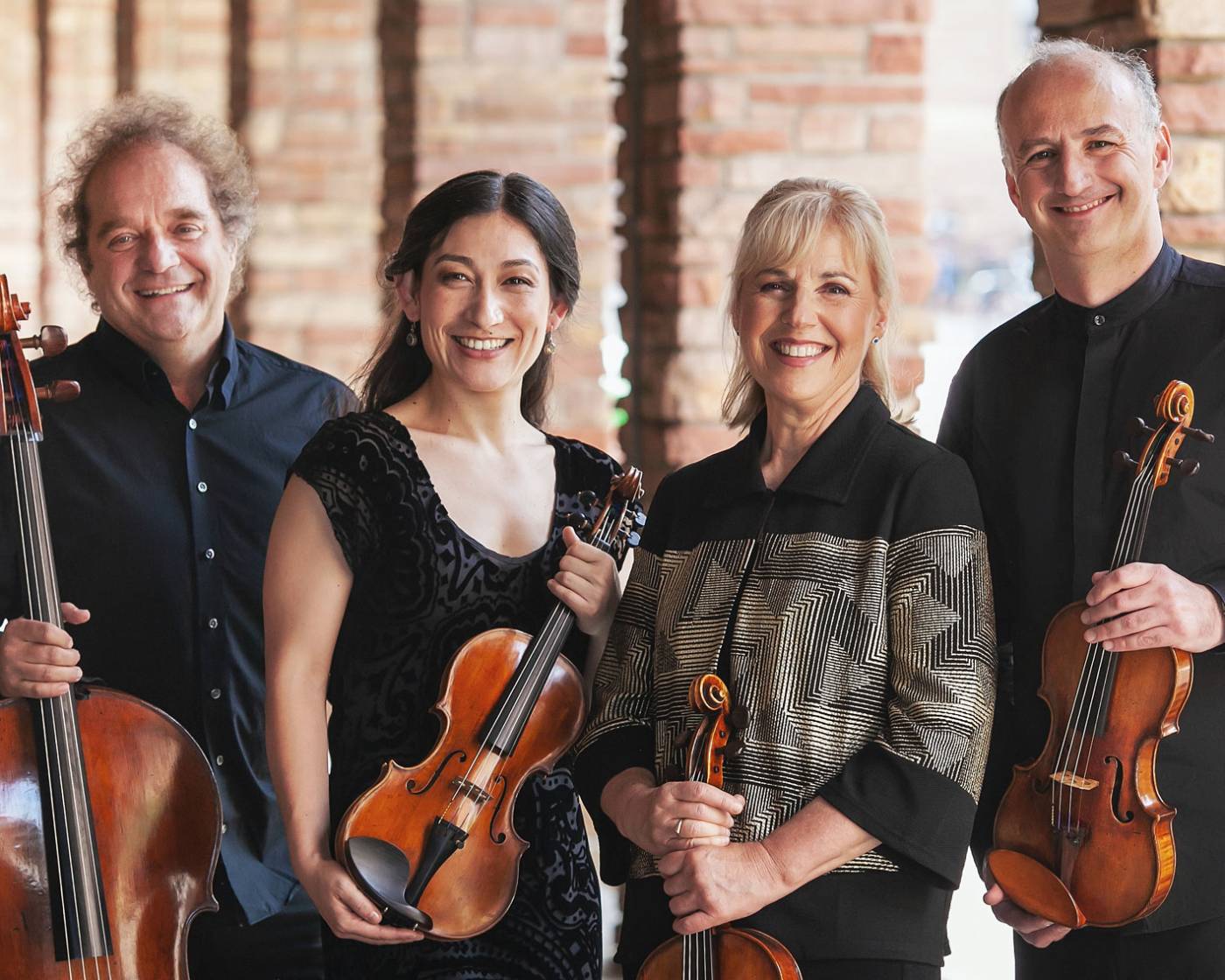Takács String Quartet Opened MAW Fest
Group Served Up Satisfying Program

Although fanfare events are still to come in the Music Academy of the West’s summer pageantry, the dense eight-week calendar of musical enticements officially began on a quiet but expectedly bold note Monday, June 17. In what has become a habit worth savoring, the grand Takács String Quartet showed up as festival-openers and served up a satisfying meal of a concert program at Hahn Hall, with the Hungarian-born, Colorado-based quartet’s mastery of Bartók as the main course.
Opening a quartet concert with Haydn, the seedbed and veritable inventor of the quartet medium, is always a fine place to start — especially in a setting with educational motives involved. With its innate bravura and collectivized subtlety, the group brought Haydn’s Quartet in C, Opus 33, No. 3 fully to life, just as they nimbly switched expressive gears and mastered the romantic-waxing character of Grieg’s Quartet No. 1 after intermission.
Clearly, though, the night belonged to Bartók. Longtime locals relish the memory of hearing the Takács performing all six Bartók quartets, free-of-charge, at the Lobero Theatre in 2000. Here, the foursome — now with charter member Andras Fejér on cello and 26-year veteran member Edward Dusinberre, first violin, joined by violinist Harumi Rhodes and violist Geraldine Walther — took on Bartók’s wily Quartet No. 4, in requisite muscular-yet-sensitive fashion.
Written in 1928, the five-movement work slaloms between moods and textures as it evolves, from the gnarling intensity of the opening through the third movement’s rueful ruminations, the fourth’s pizzicato tiptoeing and an angst-tinged party to close. Echoes of Berg’s Lyric Suite murmur here, but mostly, Bartók’s signature voice rings out, which Takács powerfully delivered to the Hahn Hall throng. Long may that habit continue.



